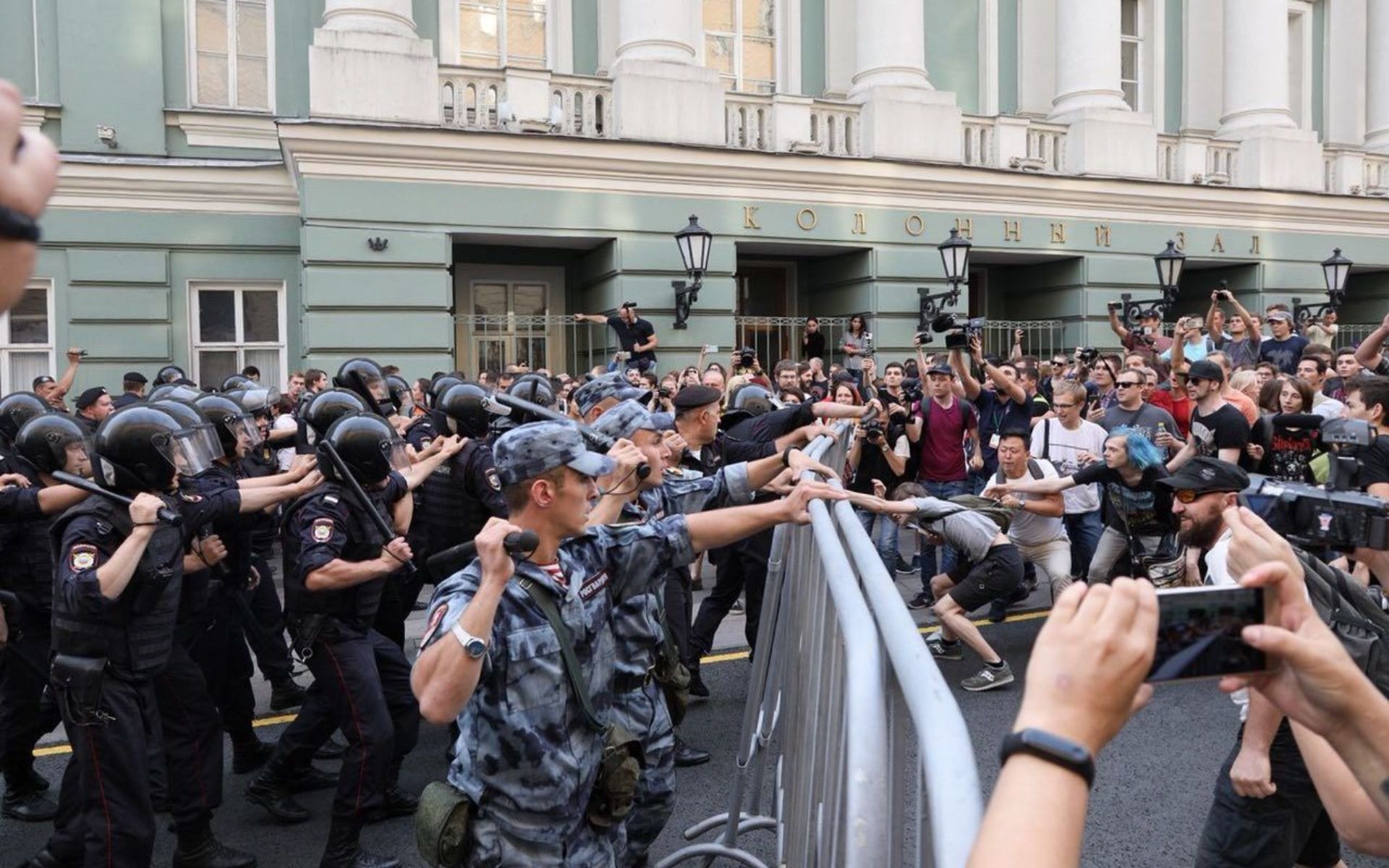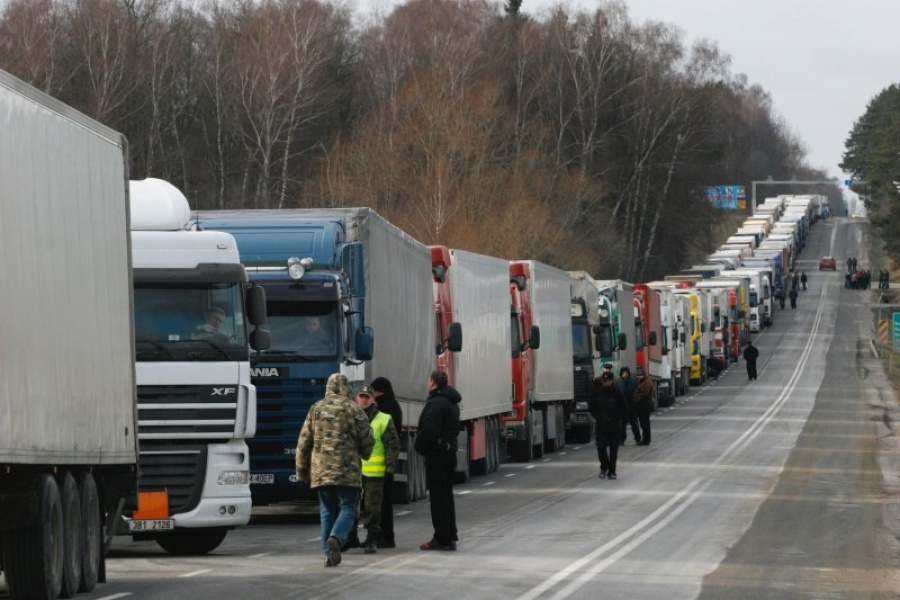The protests in Russia on Sunday were an unusual event, but they were not “the beginning of a Maidan but rather the beginning of ‘an Arab Spring,” something Vladimir Putin fears more than almost anything else and the reason he ordered his police in to disperse the protesters, Vitaly Portnikov says.
But the Kremlin now faces a choice among three unappetizing options, the Ukrainian commentator says; but it is important for Ukrainians to recognize that because of the nature of Putin and especially because of the nature of the Russian people, none of those options is good for Ukraine.
“The majority of Russians,” Portnikov continues, “are people of an imperial habit of mind. They conducted themselves exactly the same way in Soviet times” as they have in recent years.
And in the final analysis, this anger led to the destruction of the overthrow of the CPSU and the disintegration of the Soviet Union, the commentator argues. The Soviet leaders understood this because they recognized that “their fellow citizens thought” and think “exclusively with their stomachs.” Because that is the case, Portnikov says,
Once they don’t or once the Russian people think they won’t, the people will turn on any leader, including Putin.
In this situation, one in which the Kremlin leader is taking as much money from the population to support himself, his regime and his siloviki and unintentionally stoking popular outrage, the commentator says, Putin is confronted by “a difficult choice” among three problematic courses of action.
First of all, he could dispense with “imitation democracy and establish a classical dictatorship, without any elections, a free Internet or alternatives. The siloviki would become the main element of this power because they would be ready to drown Russia in blood and guarantee the security and enrichment of a narrow circle of Putin accomplices.”
In that case, protest in Russia would “become total, but it is completely possible that Putin himself would be able to sit on his throne” for the rest of his live. After that, there would be “a deluge” in Russia; but he is unlikely to care much about that.
Second, Putin might be driven from office far sooner by a combination of popular protest and elite conspiracies. The events of Sunday suggest that this is possible given that “what we saw in Russia is not the beginning of a Maidan” that would lead to reform but instead “the beginning of ‘an Arab Spring’” that would sweep away many, including Putin, before collapsing.
Or third, Portnikov says, he could capitulate to the West. That would be “best” from many points of view but one that “Putin will never choose because his own complexes won’t allow it and because he will to the end believe that his siloviki will save him from the senseless and pitiless Russian revolt – precisely the siloviki and not [US President Donald] Trump.”
What is critical for Ukrainians to understand, the analyst continues, is that none of these choices will be all that good for their country.
- “If Putin chooses a dictatorship, we can expect new military provocations, attempts at the destabilization of Ukraine, and constant resistance to the aggressor.”
- “If Putin chooses the preservation of the existing situation, we can expect floods of refugees, instability at the borders with Russia and other delights of being the neighbor of ‘the sick man of Europe.’”
- And “if Putin chooses capitulation, we can expect a reduction in the interests of the West in our country,” and instead a Western drive to integrate Russia into the Europe and the West.
In sum, he says, there is “no positive variant” on offer and “in order to survive, Ukraine must be converted into a genuine fortress, ready to resist military danger, cope with refugee flows and prepared to insist on its vision of the future in dialogue with the leading powers of the world.”
Unfortunately, Portnikov says, “a large part” of the Ukrainian population is “similar to the Russians and is prepared to vote for anyone who promises illusory social preferences,” and with them, “you won’t build such a fortress. Therefore, we can only hope” that some of the Maidan spirit survives and that “a reserve of firmness is all the same still high.”
Read More:
- Moscow attacked Skripal for betraying Russian oligarchs, highlighting mafia nature of Putin regime, Portnikov says
- Moscow military expert: Ukraine is Russia’s mortal enemy and must be dismantled or absorbed
- A warning sign in the Donbas: Moscow replacing local people with Russians
- Ukrainian OSINT sleuths release largest existing database of evidence of Russian aggression in Ukraine
- What we know about Russian troops in eastern Ukraine
- The 75 Russian military units at war in Ukraine
- Donbas “separatists” got 33 types of military systems from Russia – report
- Ukraine has law but not force on its side in Sea of Azov, Polyakov says
- Falling ratings even more likely to lead Putin to large war than they were before 2014, Larionov says
- Latest military exercise shows ‘Kremlin is actively preparing for a world war,’ Felgenhauer says
- Moscow has complex system to run agents of influence abroad, Khmelnytskyi says
- If Russia isn’t forced to return Crimea to Ukraine, major war becomes inevitable, Skobov says
- Why the arrest of Firtash may mean the death of the Russian mafia
- Kremlin’s censorship of Shenderovich interview spotlights Putin’s mafia connections
- ‘This isn’t corruption, Sir; this is kleptocracy’ – why Moscow is so angry at Yerevan
- Who’s most at risk of assassination by Putin’s siloviki? Kirillova provides a typology
- Russia, among the most corrupt countries in the world, now using it as a weapon against others





